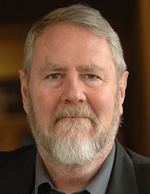The free sharing of open educational resources (OER) can be seen as essential for promoting the creation of content usable on mobile devices or in anyother learning context. OER can be effective in reducing the knowledge divide that separates and partitions societies. Educators worldwide continue to face significant challenges related to providing increased access to high quality learning, while containing or reducing costs. New developments in information technology, especially with tablets, mobile phones and even different gaming devices, highlight the shortcomings and challenges for the traditional education community, as well as those of more flexible providers, such as open universities. Such developments have the potential to increase access and flexibility in education by rendering it ubiquitous. More recently educators are being forced to focus on the effects of “digital locks” (Technological Protection Measures) and restrictive licences that come with commercial online content and are turning to OER in order to take full advantage of the affordances of new technologies.
 Rory McGreal is the UNESCO/Commonwealth of Learning/International Council for Open and Distance Education Chair in Open Educational Resources (OER) at Athabasca University, Canada. As such he is charged with promoting OER internationally particularly in developing nations in support of UNESCO Strategic Development Goal 4: Education for all. He is also co-Editor of IRRODL (International Review of Research in Open and Distributed Learning) a leading open access scholarly journal. He is the founder of the OER Knowledge Cloud, a repository of research articles on OER. He is also the recipient of several national and international awards for open and distance learning.
Rory McGreal is the UNESCO/Commonwealth of Learning/International Council for Open and Distance Education Chair in Open Educational Resources (OER) at Athabasca University, Canada. As such he is charged with promoting OER internationally particularly in developing nations in support of UNESCO Strategic Development Goal 4: Education for all. He is also co-Editor of IRRODL (International Review of Research in Open and Distributed Learning) a leading open access scholarly journal. He is the founder of the OER Knowledge Cloud, a repository of research articles on OER. He is also the recipient of several national and international awards for open and distance learning.
Advances in mobile technology not only allow people to learn in different locations than in the past, but have the ability to significantly alter the types of learning and skill-related experiences that are possible. New models of learning and performance can take advantage of mobile technology to allow learning experiences to occur anywhere. Further, new technologies such as augmented reality can allow experiences that go far beyond traditional learning. In workplace learning, mobile technologies increase the opportunities for exceptional just-in-time performance support experiences, thus reducing the need for traditional workplace training.
This talk will cover ways in which we can employ mobile technologies to redefine the types of experiences we create for education, training, and performance purposes, along with design principles and processes that can increase the likelihood that new methods are accepted and successful.
 David Guralnick holds a Ph.D. from Northwestern University, where his work synthesized concepts from the fields of computer science, instructional design, and cognitive psychology. He has served as an e-learning designer and consultant to companies ranging from multinational and Fortune 500 companies to non-profits, and is a regular keynote speaker at international conferences; founder of the International Conference on E-Learning in the Workplace; Editor-in-Chief of the International Journal on Advanced Corporate Learning; President of the International E-Learning Association; Chair of the International E-Learning Awards; and an Adjunct Professor at Columbia University. His work has been featured in Wired magazine, Training magazine (as an Editor's Choice), and the Wall Street Journal, and he is the recipient of numerous e-learning design awards.
David Guralnick holds a Ph.D. from Northwestern University, where his work synthesized concepts from the fields of computer science, instructional design, and cognitive psychology. He has served as an e-learning designer and consultant to companies ranging from multinational and Fortune 500 companies to non-profits, and is a regular keynote speaker at international conferences; founder of the International Conference on E-Learning in the Workplace; Editor-in-Chief of the International Journal on Advanced Corporate Learning; President of the International E-Learning Association; Chair of the International E-Learning Awards; and an Adjunct Professor at Columbia University. His work has been featured in Wired magazine, Training magazine (as an Editor's Choice), and the Wall Street Journal, and he is the recipient of numerous e-learning design awards.
| 25 Jun 2018 | Submission of: (i) structured 2-page abstracts (for full papers and short papersfor the main conference (ii) Special Session proposals |
| 02 Jul 2018 | Notification of acceptance for abstracts for the main conference Special Sessions notification and announcement |
| 26 Aug 2018 | Submission of complete papers for all submission types |
| 09 Sep 2018 | Notification of acceptance |
| 18 Sep 2018 | Author registration deadline |
| 17 Sep 2018 | Camera-ready due |
| 11 Oct 2018 | IMCL2018 Conference Opening |